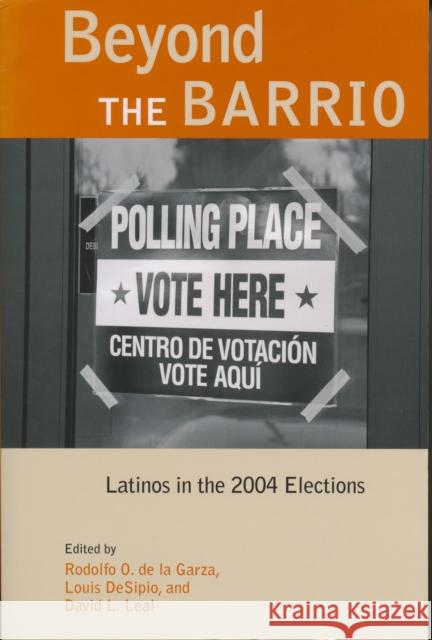Beyond the Barrio: Latinos in the 2004 Elections » książka
Beyond the Barrio: Latinos in the 2004 Elections
ISBN-13: 9780268025991 / Angielski / Miękka / 2010 / 368 str.
Beyond the Barrio: Latinos in the 2004 Elections analyzes the mobilization of Latino voters at the state and national levels during the 2004 campaign and the efforts of Latino communities to influence electoral outcomes. The volume is the most recent installment in the quadrennial analyses of Latinos and national elections begun in 1988 by Rodolfo de la Garza and Louis DeSipio. This ongoing project is the only scholarly effort to track the emergence of Latino influence in U.S. politics over the last two decades.The volume examines how and when Latinos were the focus of candidate/campaign mobilization, how Latinos themselves organized to influence electoral outcomes, and where and under what circumstances they succeeded. In addition to state-level analyses, Beyond the Barrio presents an analytical overview of the national presidential campaign that includes measures of Latino influence and a review of state and local contests that led to the election of Latino officials. It also extends the analysis to states with small Latino populations that are just beginning to organize. The editors consider 2004 as a "signpost" election, in which both major parties began a transition from symbolic gestures toward Latino voters to more serious, issue-related efforts to court the Latino vote.The expertise of the contributors ensures that Beyond the Barrio avoids simple generalizations about the "Latino vote" and illustrates its complexity, as well as the opportunities and challenges faced by Latino voters and Latino leaders."This latest volume focusing on Latino politics in the 2004 election may well be the best in the series. If you are looking for a book on Latino political participation or a work to supplement your American Government class, this is the book." --Robert D. Wrinkle, University of Texas-Pan American"This volume makes an indispensable contribution toward understanding the continuing political development of U.S. Latino communities by assessing their roles in the 2004 U.S. elections. This book should not be missed by anyone interested in tracking the complex realities of the roles played by the nation's largest ethno-racial minority group in the first national elections since officially gaining that status following the 2000 decennial U.S. Census." --Ronald Schmidt, Sr., California State University, Long Beach











